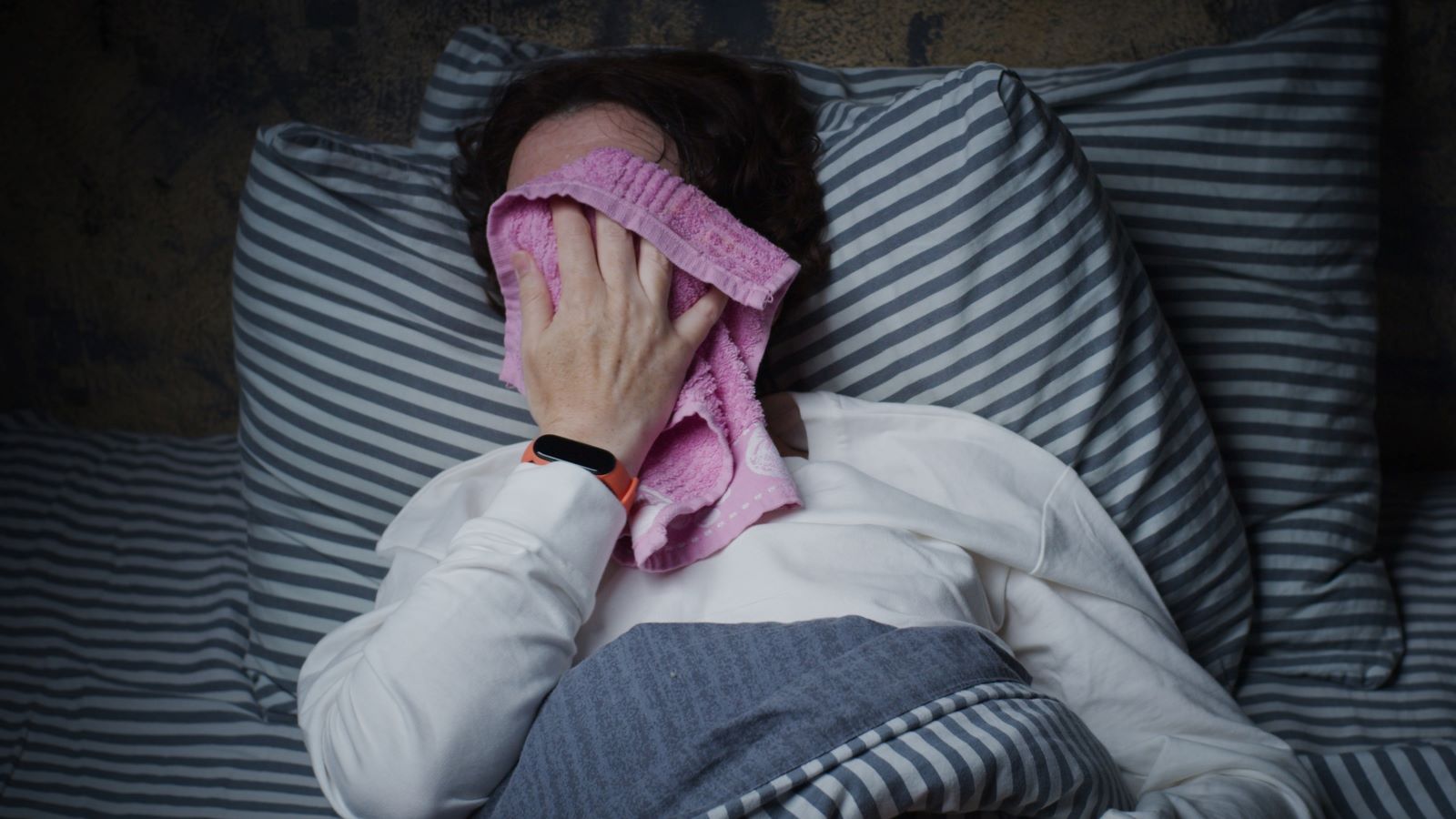<< Back
7 Common Causes of Night Sweats (and When to Worry)

October 28, 2025
Waking up drenched in sweat isn’t just uncomfortable — it can also be a clue that something’s going on with your body.
“Night sweats can have many causes. Some are totally harmless, while others can be a sign of underlying health problems,” says Arjun Banerjee, MD, with Hartford HealthCare Medical Group. “If they happen often or are disrupting your sleep, it’s worth talking to your doctor.”
Here are seven possible reasons you’re overheating while you sleep — and what to do about them.
1. Your bedroom feels like a sauna
Before you assume the worst, check your sleep setup. Heavy blankets, flannel pajamas, or a thermostat set too high can turn your bed into a heat trap.
“The ideal sleep temperature is around 65 to 68 degrees,” says Dr. Banerjee. “If your room is too warm, your body will naturally try to cool itself — and that means lots of sweating.”
Try switching to breathable cotton sheets, lighter sleepwear or putting a fan near your bed for better air circulation.
> Related: What Is the Best Temperature to Sleep In?
2. Your hormones are shifting
Hormonal changes are one of the most common — and most frustrating — causes of night sweats.
Menopause and perimenopause can bring hot flashes that strike at any hour, and pregnancy often throws body temperature regulation off balance, too.
“Estrogen helps regulate your body temperature,” says Dr. Banerjee. “When hormone levels fluctuate, it can cause sudden spikes in body heat and sweating.”
> Related: 4 Signs of Perimenopause (and How to Manage It)
3. Your dinner is to blame
Spicy foods, alcohol and caffeine can all raise your core body temperature or stimulate your sweat glands.
Even eating a heavy meal close to bedtime can kick your metabolism — and your internal furnace — into overdrive.
“What you eat and drink at night matters,” says Dr. Banerjee. “If you notice you sweat more after certain foods, try cutting them out and see if it helps.”
4. You’re fighting an infection
Sometimes, night sweats are your body’s way of fighting something off.
Even a mild cold or sinus infection can trigger this response, as your immune system releases chemicals to regulate temperature and fight germs.
“Infections — whether bacterial or viral — can lead to night sweats,” says Dr. Banerjee. “If you also have a fever, chills or unexplained weight loss, it’s time to call your doctor.”
5. Your meds have a side effect
Certain medications — like antidepressants, steroids or blood pressure drugs — can alter how your body regulates heat.
“Sweating is a known side effect of some prescriptions,” says Dr. Banerjee. “But be sure to consult your provider before making any changes.”
Your doctor can help with dosage adjustments or alternative options if night sweats are affecting your sleep.
6. You’re stressed — even in your sleep
Anxiety doesn’t always go away when you go to bed. Stress hormones can keep your body in high gear, triggering sweat.
“When your body is in a state of stress, your nervous system stays activated,” says Dr. Banerjee. “That can lead to sweating, even when you’re sound asleep.”
Try winding down with relaxation techniques like deep breathing, gentle stretching, or mindfulness before bed to help calm your system.
> Related: Stress or Anxiety: How to Tell the Difference — And What to Do About It
7. An underlying health issue
Most of the time, night sweats are harmless. But occasionally, they can be a sign of something more serious — like thyroid disorders, diabetes or certain cancers.
“It’s very rare that night sweats are dangerous, so don’t be alarmed,” says Dr. Banerjee. “But if they’re persistent, severe or come with other symptoms like fever or weight loss, it’s time to talk to your doctor.”
Your provider can run simple blood tests or imaging to pinpoint what’s behind the sweating — and help you get back to cooler, more restful nights.